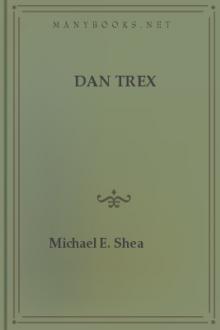How to Be a Mentsh (and Not a Shmuck), Wex, Michael [top inspirational books .txt] 📗

Book online «How to Be a Mentsh (and Not a Shmuck), Wex, Michael [top inspirational books .txt] 📗». Author Wex, Michael
If there is some record that indicates even approximately when Yiddish first took mentsh beyond its narrowly taxonomic German usage, it isn’t immediately accessible. Alexander Harkavy’s 1910 Yiddish-English dictionary defines mentsh as only “1) man; 2) employee, servant,” although his 1928 Yiddish-English-Hebrew Dictionary expands this to “human being, man; person; servant, employee.” Uriel Weinreich’s Modern English-Yiddish/Yiddish-English Dictionary, first published in 1968, adds one more meaning to Harkavy’s second list: “responsible/mature person.” To say, though, that the meaning of “responsible/mature person” must therefore have developed sometime between 1928 and 1968 would be as absurd as to claim that mentsh began to mean “human being” only between 1910 and 1928.
Harkavy and Weinreich were both first-rate scholars to whom everybody working in Yiddish owes an incalculable debt, but there is only so much that anybody can cram into a one-volume dictionary. There is a multivolume, comprehensive dictionary of Yiddish, but it is “comprehensive” only in the way that a “big fucking deal” is large and sexually active: Der Groyser Verterbukh fun der Yidisher Shprakh (The Great Dictionary of the Yiddish Language) has actually managed to improve on Dorothy Parker’s description of Katharine Hepburn’s acting style as running “the gamut of emotions from A to B.”
As most readers probably know already, Yiddish is written in the Hebrew alphabet, which has twenty-two letters, beginning with aleph. Mentsh starts with mem, the thirteenth letter, and is not found in The Great Dictionary, which begins with aleph and ends with aleph. The Great Dictionary covers the alphabet from A to A. Material for the remaining letters was assembled a long time ago and has been lying in a sort of lexicographical limbo ever since, neither published nor discarded, as inaccessible to the public as if the editors’ mothers had tossed it all out with the editors’ old comic books.
There are competing stories about how this came to pass. The version that seems to keep lawyers from the door is that it was strictly a matter of money. It ran out in 1961 or 1980-something, and despite the growing academic interest in Yiddish, the chairs that have sprung up at various universities, and Aaron Lansky’s remarkable success in establishing and raising funds for the National Yiddish Book Center in Amherst, Massachusetts, the dictionary has been unable to find enough donors to fund a monument of scholarship that would make everybody’s work in the field easier, deeper, and more accurate.
The one that rings true poetically, whether it really happened or not, also helps to remind us of the undeniable fact that Yiddish-speaking Jews can violate the principles outlined in this book as well as anybody else: a bitter argument over the use of the silent aleph in spelling certain words led to a period of prolonged inactivity, which led in turn to a loss of funding.
Whatever really happened, the materials are not in the public domain and access to them is severely restricted. So the only glimmer of hope for dealing with twenty-one twenty-seconds of the Yiddish alphabet resides in the fact that Yiddish makes frequent use of prefixes, so many of which begin with aleph that it has been estimated that the four volumes devoted to that letter contain about a third of all the material that was supposed to have been published. So even though the Verterbukh never gets as far as mentsh, it contains such verbs as oysmentshlen, avekmentshlen, oysmentshen, and oyfmentshlen, all of which describe different stages in the process of turning a raw hunk of humanity into a mentsh, and can therefore give us a fairly clear idea of the basic outlines of mentsh-hood.
The type of person who emerges could be described as kosher. Kosher here does not mean that she is necessarily Jewish or devoted to Jewish ritual law, forget about readily edible by Jews; the basic meaning of kosher is “proper, fit for, appropriate, worthy.” A kosher person, then, is someone whose conduct is fitting, proper, appropriate; someone who knows how to behave in human society and can get herself through life without treading on other people’s feet. Just remember that kosher in Latin would be decens—from which we get the English decent. A kosher person is a decent person, a person of integrity who can hold her head up in society because she has nothing to be ashamed of.
Being a mentsh involves more than refraining from shameful behavior, though; you don’t get any awards for not committing murder or neglecting to rob a bank, and plenty of otherwise decent people accepted segregation or South African apartheid as the natural course of life, without ever trying to do anything about them. Merely holding yourself back from doing the wrong things is not enough. A mentsh has to do the right things, and must understand the difference between right and wrong in order to do so: right and wrong in an absolute sense and right and wrong in a given situation, especially one in which all possible actions might be equally moral but some could still be very wrong.
A mentsh also needs to be self-sufficient, able to provide for himself in normal circumstances without having to rely on the kindness of others. He stands on his own two feet, knows the limits of individual effort, and—if circumstances should demand it—ain’t too proud to beg:
Having been told of a man who died of starvation, a certain tzaddik [Hasidic leader] responded, “No, he died of pride because he was unwilling to ask others for food.”
“Who is wise?” asks the Talmud. “He who foresees the outcome of his actions” (Tomid 32a). A mentsh understands the necessity of doing the right thing at the right time.
A mentsh, then, is a person who knows how to live with others as well as with herself, a person fit for human society. A friend will tell a friend just as easily as a parent tells a child, “Zay a mentsh, be a





Comments (0)